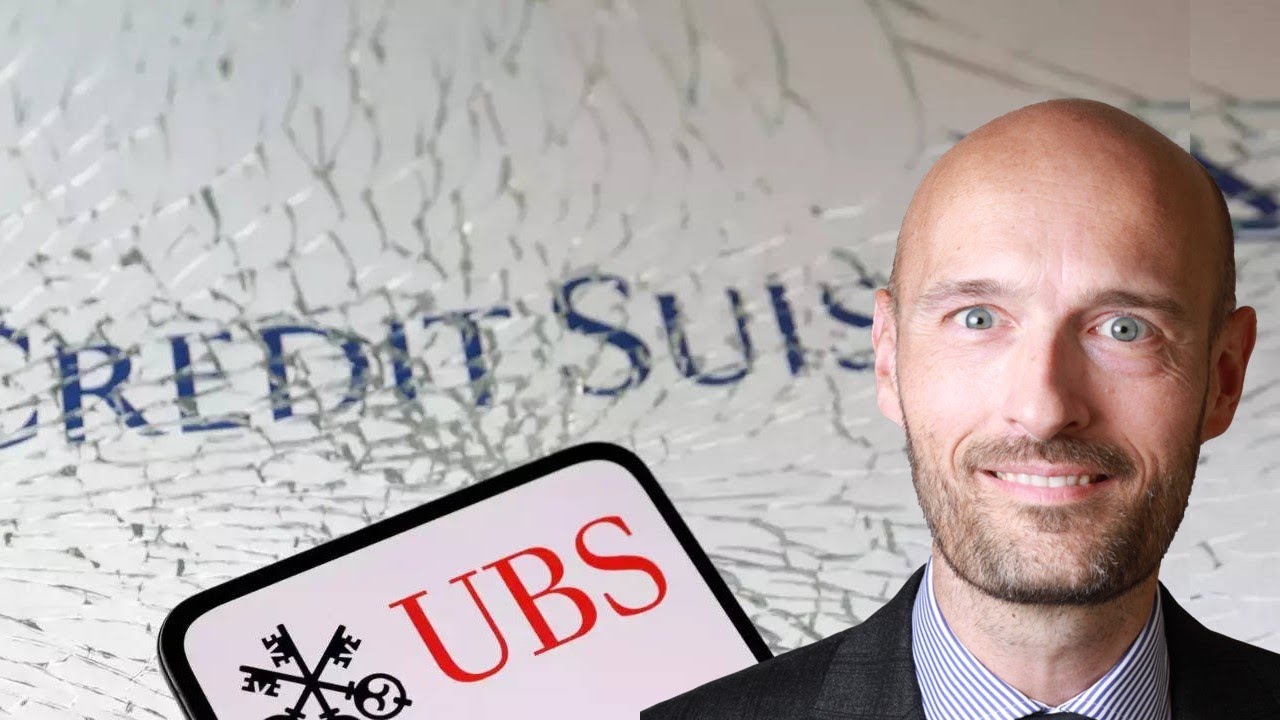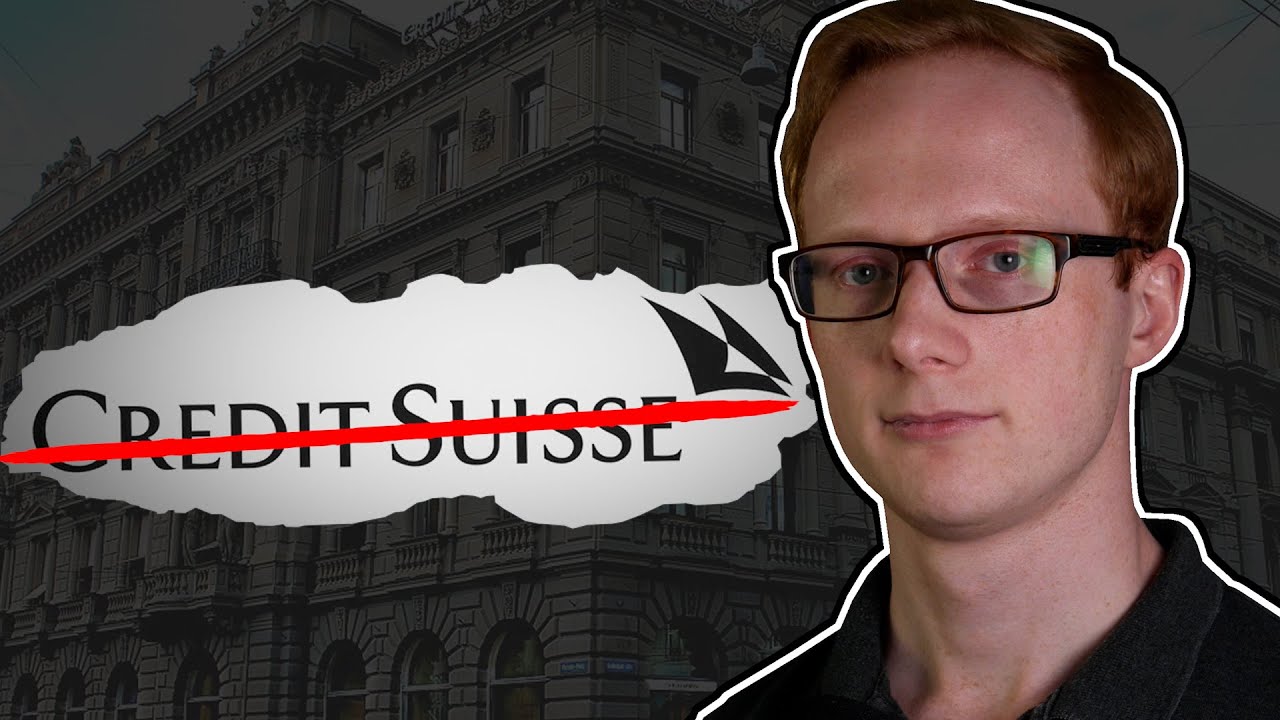Not sure if we can assume this to be true every single time. A simple liquidity squeeze can push any company into default.
But if that’s not sufficient a central bank can always provide liquidity (using the collateral from the bank), if that’s not sufficient (like with CS), you’ll need to do something that restore trust further (merger/nationalization/bailout/etc.)
(and no “money” is created in the process, it’s balance sheets being moved around from commercial bank to central bank)
I used to work in a company that kept reorganizing for years and years and years. It was terrible: Every day you’re wondering if “this is the day”?
Sounds catchy but fortunately thats not quite the case. Swiss Banks must keep 125% of deposits in assets. If you deposit 100 CHF, they must have e.g. mortgages worth 125 CHF.
These assets may not be liquid and they may be booked to maturity. Meaning that interest rate risks were not reflected yet. So in a bank run, the Bank may find itself in a situation where they can only sell these assets for lets say CHF 120. In such situation, the Bank took a hit of 5 on its balance sheet.
If, a Bank operated at a hard cash coverage ratio of 10%, the Bank would post a Bank run return pay all deposits back and it would face a reduction in its equity of 50%.
If the Bank‘s equity detoriated too low and it went into a resolution case, additional bail-in bonds would be triggered (which was not the case at CS, they only triggered their AT-1). These bail-in bonds would further increase the Bank‘s equity and therefore provide additional moneys to pay back the deposits.
If we post this STILL face missing cash, the deposit insurance jumps in to pay the missing Delta (up to the stated amount). So the 8k you calculated is only relevant for that additional piece of cash.
A simplistic calculation:
- Deposit of 100
- Mandatory Assets of 125
- Asset Value / Resolution Loss of 20% => Bank is at zero Equity (before bail-in amount) yet you get 100% of your deposit back (and deposit insurance doesnt pay a thing)
- Asset Value / Resolution of ~ 25% => Bank is at zero Equity and Bail-in Amounts are consumed; you still get your deposit and insurance doesnt pay a penny. Bank and additional bail-in bonds are dust.
- Asset Value / Resulution at ~ 33% => Now we have another 8 of loss, which equates to max insurance amount of the deposit insurance you calculated for a worst case, mass bank colapse; you still get all your deposit back but the insurance is at its limit
Conclusion - the banks‘ assets would need to materially lose value before the deposit insurance gets into trouble. And even then, a scenario where you take a material hit is pretty much unthinkable.
This is of course always dependant on no fraud, no mis-valuation and no complete illiquidity and no shock interest increase (steady ones are less of a Problem and just lead to timely resolution before deposits were at risk). GFC was a special case here as banks sat on toxic assets that truly became illiquid. Banks books by now look way more traditional. Unless we have an over-night interest hike of 10% percent, I don‘t see Swiss deposits at risk, even at the former CS.
Clearly, the situation is different with non-deposit liabilities the Bank had e.g. ETN‘s.
Now the question is, should we rename this topic to “What would happen if UBS goes bust…”?
Given the size of bags that UBS has now inherited from CS…
It’s fun because UBS’ stock went up, indicating the stock market may think they’ve made a good operation, but their credit default swaps price jumped heavily, indicating investors consider their risk of defaulting on their debt to have grown materially. Go figure who’s buying/selling what.
Thanks @Julianek for sharing this piece, it is very educational.
Also, I guess we now know who is the Credit Suisse of fixed income investing. I’m not sure I’d keep my capital at Aquila Asset Management if I had any there. xD
UBS’ outlook cut to negative by S&P…
well how to you backstop $1.5tn AUM? ![]()
Just imagine there is a global RE crisis again where only the RE class shreds 10%, how many unrealized billions of losses are those? (not sure they need to be realized though, I’m too naive in banking rescue operations)
does anyone know if they said anything about what’s happening to the CS brand after the merge? Is it gonna be axed or kept for retail… ?
Hi, I just have one question…
Why people keep buying/selling CS if the shares are going to be transfered to UBS stocks in a 1:22.48 ratio? What is the interest on buying CS stocks higher than 0.76chf?
Is there something that I am missing?
Taxation (realising losses), delivering shares that you previously agreed and are obligated to, other technical reasons.
Also, there is a small chance (and possibly speculation) that UBS will not take them over at their current price, as with many takeovers - though in this particular case it seems unlikely, as the political will to make it happen is so strong.
Also, some people are probably just trading on technical catalysts or seeing the low price and thinking it’s a buying opportunity. Not everybody cares to gather information before investing and that 1:22.48 ratio hasn’t been made that obviously public that everybody wanting to trade CS shares would have had it thrown into their face.
People were buying Hertz stock in 2020, after it had filed for bankruptcy. Amazingly enough, that one turned out well: the company was bought for $8 a share, managed its reorganization and is now listed again:
On a similar note, LATAM Airlines issued ADRs in the U.S. a long time ago. What are ADRs? Well, basically ADRs are just certificates or „wrappers“ around the original underlying foreign stock. Created as a mere legal technicality to satisfy local requirements for the U.S. market. But in essence the same stock, earning the same dividends as the one that’s traded on the Bolsa de Santiago in Chile.
In this case at a 1-to-1 ratio:
One American ADR representing one share in Chile.
And both of them have been trading:
The ADR at 0.41 USD in the US OTC market
And the Chilean stock at 6.33 CLP in Santiago.
![]() At that point, one may google the exchange rate between the Peso and the Dollar themselves.
At that point, one may google the exchange rate between the Peso and the Dollar themselves.
I don’t know what his sources are but Patrick Boyle has a very comprehensive video about what actually happened these last few days:
I’ve found it very enlightening.
Edit: To note, it provides an inkling as to why CS and UBS AT1 bonds may have been structured the way they were, and not like any other AT1 bonds elsewhere on the planet: they were used as part of the total compensation of senior management and were meant to play an incitative role in avoiding failure as they would be written off if that happened and could be written off by regulators when things got dire (providing regulators with an instant way to target senior management’s compensation in case of severe failure).
probably trading credit, not cash? Can you find out?
I guess this is up to 50 shares or something
Up to 700 shares i.e. CHF 700, surprisingly.
Weird marketing, but ja, we’re talking about it, so it isn’t bad marketing ![]()
The Welcome Gift is granted in the form of cash on the trading account opened by the Recipient.
not bad!


